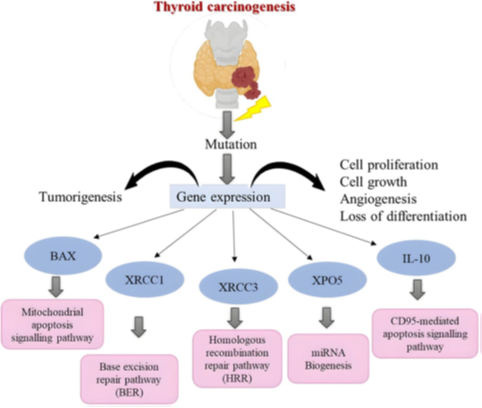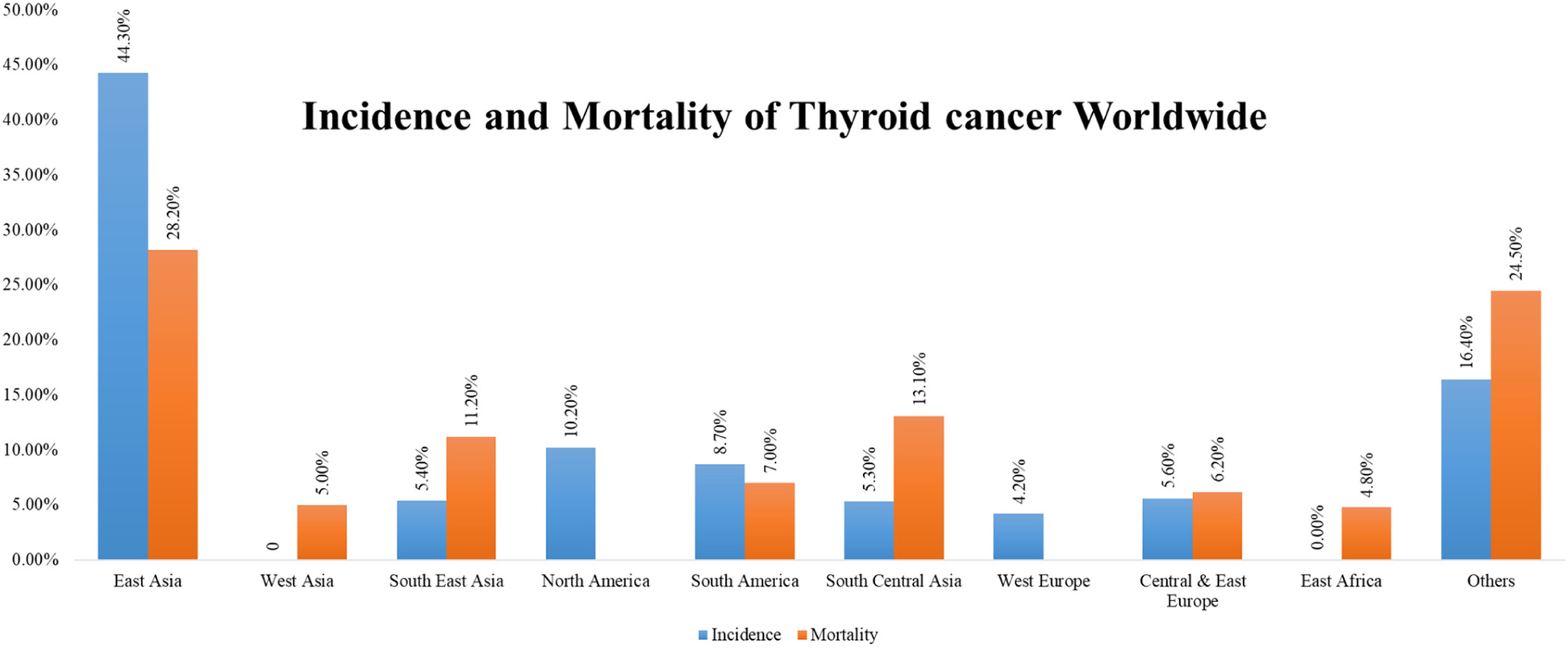Identification of crucial genes involved in thyroid cancer development
Published in General & Internal Medicine

As we age, our endocrine system, including the thyroid gland, changes how it regulates biological functions. Establishing a physiological norm for thyroid hormone levels is challenging due to the increasing resetting of the hypothalamic-pituitary-thyroid axis with age. This results in elevated levels of TSH. Thyroid carcinoma is more common among older adults, and men are more prone than women to developing these tumors aggressively. The mortality risk of thyroid carcinoma increases significantly with age from the ages of 40 to 45.This review highlights that although the link between age and thyroid cancer is still not obvious, generation continues to be a significant predictive factor for thyroid cancer. They were identifying these critical genes as potential biomarkers improves thyroid cancer patients’ early diagnosis and survival. By developing such gene investigations at the beginning of the thyroid cancer development process, we can achieve better outcomes and identify the most aggressive forms of thyroid cancer. Finally, altered thyroid function may significantly influence lifetime control via several pathways. Reduced thyroid function, in particular, may contribute to an increased lifespan.






Please sign in or register for FREE
If you are a registered user on Research Communities by Springer Nature, please sign in